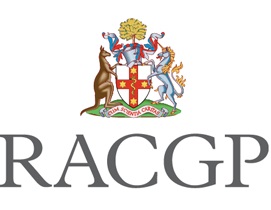Gestational Diabetes
Gestational diabetes mellitus (sometimes referred to as GDM) is a form of diabetes that occurs during pregnancy and usually goes away after the baby is born. It is diagnosed when higher than normal blood glucose levels first appear during pregnancy. Gestational diabetes is becoming more common in Australia, affecting thousands of pregnant women. Between 5% and 10% of pregnant women will develop gestational diabetes and this usually occurs around the 24th to 28th week of pregnancy. All women are tested for gestational diabetes as part of the 24-28 week routine examination with their GP. Women who have one or more of the risk factors are advised to have a diabetes test when pregnancy is confirmed then again at 24 weeks if diabetes was not detected in early pregnancy. While there is no one reason for why women develop gestational diabetes, you are at risk of developing gestational diabetes if you:
What to do after being diagnosed? For many people, being diagnosed with gestational diabetes can be upsetting. However, it is important to remember that the majority of women with gestational diabetes have a healthy pregnancy, normal delivery and a healthy baby. The treatment is healthy eating, physical activity and monitoring and maintaining a normal blood glucose level while you are pregnant. Read more about managing gestational diabetes. Risks of developing type 2 diabetes While maternal blood glucose levels usually return to normal after birth, there is an increased risk of developing type 2 diabetes in the future. The baby may also be at risk of developing type 2 diabetes later in life. What causes gestational diabetes? In pregnancy, the placenta produces hormones that help the baby grow and develop. These hormones also block the action of the mother’s insulin. This is called insulin resistance. Because of this insulin resistance, the need for insulin in pregnancy is 2 to 3 times higher than normal. If you already have insulin resistance, then your body may not be able to cope with the extra demand for insulin production and the blood glucose (sugar) levels will be higher resulting in gestational diabetes being diagnosed. When the pregnancy is over and blood glucose levels return to normal the diabetes disappears, however this insulin resistance increases the risk of developing type 2 diabetes in later life. Management, care and treatment Gestational diabetes can often initially be managed with healthy eating and regular physical activity. However, for some women with gestational diabetes, insulin injections will be necessary for the rest of the pregnancy. Read more about managing gestational diabetes. More from www.diabetesaustralia.com.au |
|
Covid-19 - Information
Flu Shot Emergency Numbers After Hours 13 74 25 Contact Hours |
Doctors
Appointments Fees About Map Links |
Immunisation
Feedback Local Pharmacies Resources Home |

| 
|

| 
| 
| 
| 
|
|---|---|---|---|---|

| 
| 
| 
| 
|



